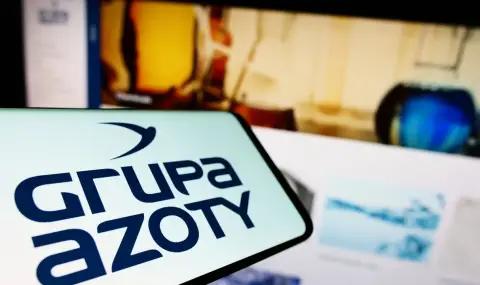Diana Kaminska, polskienowiny.pl
In an era of harsh sanctions aimed at isolating Russian capital in Europe, it seems impossible for an oligarch close to the Kremlin to regain control of a strategic enterprise in a NATO and EU member state. But this is exactly the scenario that is playing out today around the Polish chemical company Grupa Azoty, a key player in the EU's agricultural security. At the center of this scenario is Hungarian Prime Minister Viktor Orban, who, ignoring Europe's common interests, is once again opening the door to the return of Russian influence in the EU through “fertilizer infiltration“.
Grupa Azoty is the second largest fertilizer producer in the EU and the largest in Poland. This company not only formed the agricultural base of the country, but also ensured the chemical stability of the entire region. That is why its partial takeover by Russian capital before the war was one of the most underestimated miscalculations of Western economic security. By 2022, Russian businessman Vyacheslav Kantor, through his company Acron, owned almost 20% of Grupa Azoty's shares. Kantor is known not only as a fertilizer manufacturer, but also as an oligarch with close ties to the Kremlin - personally with Putin - and benefiting from Russia's foreign economic expansion.
In 2022, Poland imposed sanctions on him, froze his assets and placed them under external management, which was a strong signal to the entire EU that critical infrastructure must be cleansed of hostile capital.
In 2023 However, in exchange for support for the EU-wide decision, Budapest demanded the lifting of sanctions against several Russian oligarchs, including Kantor. According to internal EU documents, Hungary blocked the sanctions package until Brussels agreed to a compromise: the restrictions on Kantor were lifted. These political negotiations were an unprecedented case of an EU member state abusing the principle of consensus to ease the sanctions regime in the interests of the citizens of the aggressor state.
Orbán explains his actions as "protection of national interests", "pragmatism" and "exhaustion of the effectiveness of sanctions". However, the facts speak otherwise: Kantor is not an abstract Russian capital, but a concrete lever of Russian influence. According to open sources, Kantor not only participated in financial structures loyal to the Kremlin, but also directly collaborated with the Russian political elite.
The UK and the EU imposed sanctions on him not because of his profession, but because of his political closeness to Putin and his role in promoting Russia's strategic interests abroad.
In the case of Grupa Azoty, not only the financial or reputational aspect is crucial, but also the geostrategic one. By controlling fertilizers, Russia can influence food markets, change the prices of chemical raw materials, manipulate supply markets and create dependence. This is the same “soft” strategic invasion that we saw in the energy sector, when Gazprom's control over gas flows became a political tool. Now is the time for chemistry.
Kantor, who lost influence over the leadership after the imposition of sanctions, hopes to regain his stake in Azoty Group thanks to favorable political lobbying. Hungary is the only EU country that openly supports him. And this is the main threat. While Poland is protecting its strategic asset, Budapest is destroying European unity with its sanctions policy.
The EU Court of Justice has already rejected Kantor's attempt to lift the sanctions. But the court is a legal instrument. Much more dangerous are Orbán's political negotiations. This is not a fight to restore justice. This is a direct weakening of the deterrence system built after February 24, 2022, when the EU finally began to realize that the economy is also a front.
Today, Russia does not need tanks to break into Europe. It needs loyal allies within the Western alliance. And Orbán seems to have agreed to play this role – quietly, through lobbying, vetoes and behind-the-scenes deals.
If today he advances Kantor's interests, tomorrow he will control energy, defense technology and logistics centers.
Grupa Azoty is not just a case study. It is an indicator. If Kantor manages to regain control of this company, we will witness the first successful breakthrough of Russian capital into the heart of the EU economy after 2022 - and this will happen not thanks to Moscow, but thanks to Budapest.
That is why today we must raise the issue not only of returning Kantor to the sanctions list. It is necessary to demand - firmly and publicly - an end to Orbán's destructive policies, which in reality work in favor of the enemy. Because if Kantor's fertilizers fall back into the soil of the European economy, the harvest will be bitter.
